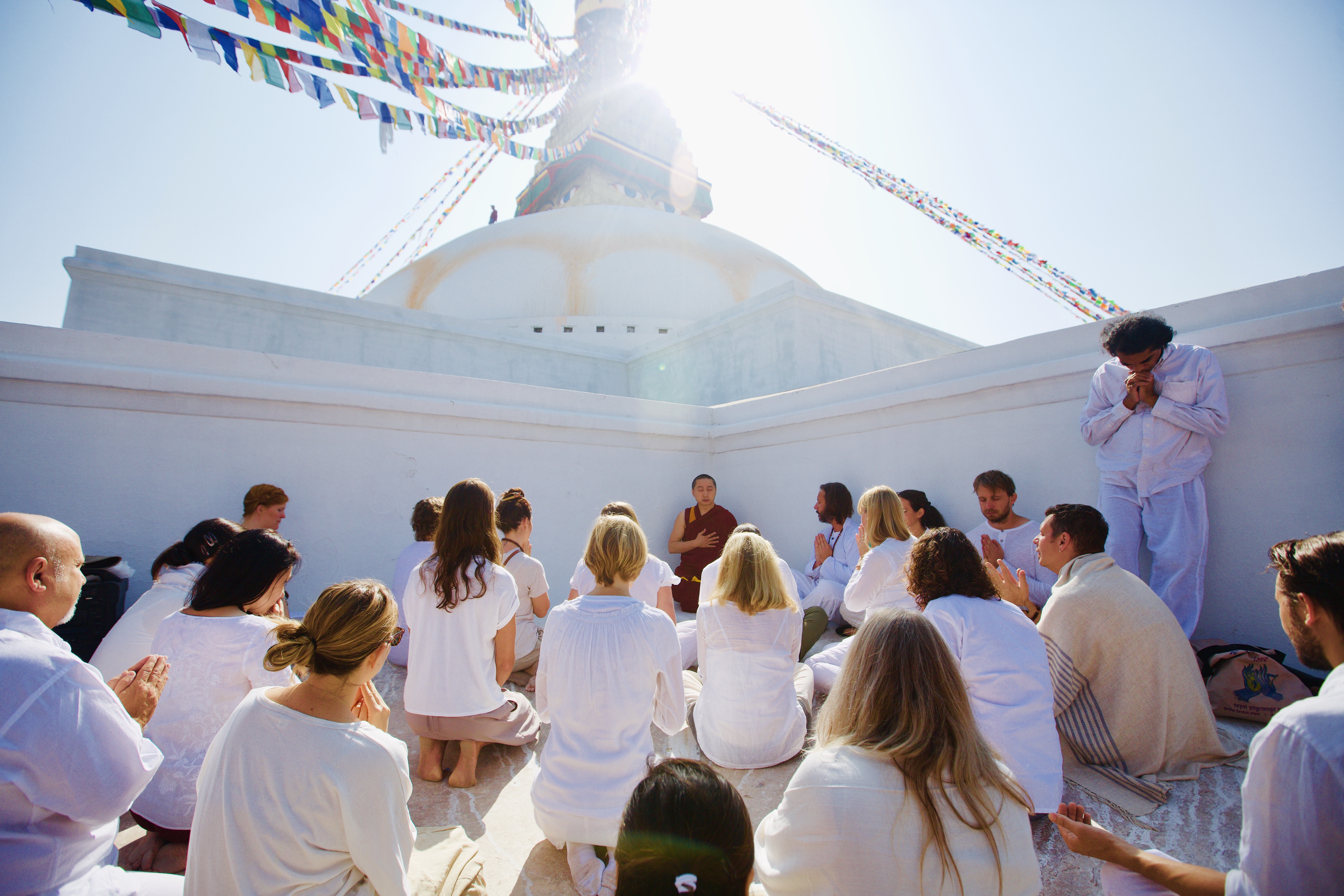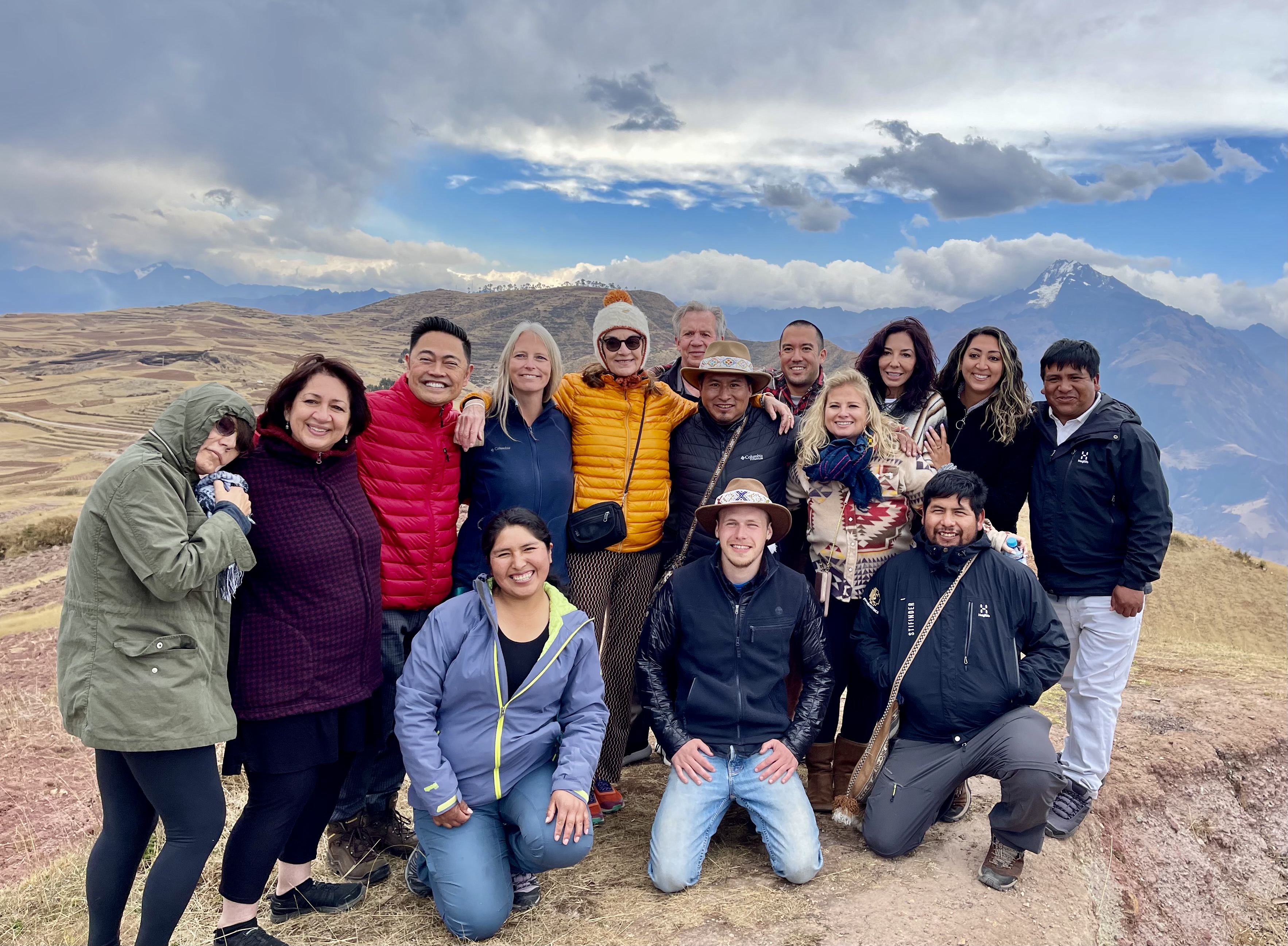
Mindfulness in Buddhism is worth examining deeply. COVID has left us stressed and in search of meaning. It has increased our suffering considerably. According to Buddhist tradition, cultivating mindfulness deepens understanding of our thought patterns, neurosis, and leads to a profound sense of gratitude for life’s many gems. It can also eliminate suffering.
With deep enough practice, transformation happens. We transmute our suffering into peace and insight while obtaining the power to do the same for the surrounding world. This type of internal reconfiguration is extremely valuable not only during these times of increased suffering but all the time.
We may think that mindfulness simply means to be present during a seated practice, but in Buddhist tradition it goes much deeper than that. Foremost, it teaches that seated breath meditation is simply not enough. Mindfulness in Buddhism teaches that with Right Diligence we should aim to sustain present moment awareness throughout our entire days.
Mindfulness in Buddhism: Using Mindfulness Effectively
Here in the West, we’ve seen mindfulness advertised as a practice for stress relief. Psychologists even use mindfulness practice as part of their cognitive-behavioral therapy (CBT) programs for their patients with ailments ranging from generalized anxiety to depression.
Buddhist Psychotherapist Dr. Miles Neale in his book on Tibetan Buddhism The Gradual Path presents an interesting point about meditation: that it serves a higher purpose than mere stress relief reduction.
“Meditation was developed for human liberation, not mere stress reduction or symptom relief. How mainstream Western culture approaches meditation is analogous to using a rocket launcher to light a candle.”
He makes a good point, and thereafter guides readers into the various steps of the Tibetan Buddhist Lam Rim path to enlightenment. On this path mindfulness is important, yet serves a higher purpose than simply calming our racing hearts and helping us sleep better.
Dr. Miles Neale is leading an incredible journey to Nepal and India in October, 2022, Finding Buddha with Dr. Miles Neale and Special Guest Geshe Tenzin Zopa. It is a powerful pilgrimage to the four holy sites of Lumbini, Kushinagar, Sarnath, and Bodhgaya to connect with the historical Buddha, make offerings, purify karma, and collect merit.
Another popular writer within the Buddhist tradition who’s written extensively on mindfulness is Vietnamese monk Thich Nhat Hanh. In his book The Heart of the Buddha’s Teachings,
“The practice of not clinging or attaching to feelings is an important part of meditation. If we face our feelings with care, affection, and nonviolence, we can transform them into a kind of energy that is transforming and healing. When a feeling arises, Right Mindfulness identifies it, simply recognizes what is there and whether it is pleasant, unpleasant, or neutral. . .We don’t fight. We say hello to our feelings so we can get to know each other better.”
Mindfulness is such a powerful tool that it’s included as one of eight components of The Noble Eightfold path, therein called “Right Mindfulness”. Thich Nhat Hanh explains that Right Mindfulness is a practice that is essential to unlocking the rest of the 7 practices within the Path, as well as the 4 Noble Truths.
Many people want to know how to use mindfulness effectively, most prominently in the form of meditation. Thich Nhat Hanh, in his book, offers ways to begin meditating while giving modifications for those who are just starting out.
For example, counting breaths to 10 then back down to 1 is a good way to maintain focus on the breath. If the meditator loses count, they can simply start over back at 1 with the continuing goal of making it to 10 (and then back to 1).
This sort of counting develops the necessary concentration required for long sessions of sitting with the breath. Such sitting sessions result in vast amounts of peace, clarity, and insight.
Why Mindfulness Matters Now More than Ever

Mindfulness is a process that helps us understand and neutralize our constant upwelling of emotions. Through consistent mindfulness practice, we begin to understand our emotions as “just there” as opposed to feeling that they’re intimidating and based in reality.
We begin to see, actually, that our emotions more often than not stem from thought formations and long-held narratives—beliefs, too. When we create ideas that reality goes against, we experience fear, uncertainty, and suffering.
Buddhism teaches that we can look deeply into our suffering with mindfulness to transform it into gems of joy.
It seems today we’re experiencing unprecedented amounts of suffering. We’re faced with a global pandemic, environmental catastrophe, and disintegrating connection between families and people in general. Difficult times can overload the mind with unproductive “what-ifs”, fearful thoughts, and unsettling emotions. This explains why mindfulness matters now more than ever.
Practicing Right Mindfulness as presented by Thich Nhat Hanh can purify a mind racing with neurosis and worry. Even if worry and fear is based on actual events that have happened or might happen in our lives, mindfulness can change the way we perceive events and their results.
Through mindfulness, job loss and ill health become an opportunity for transformation. Something like the loss of a friend or elder is an opportunity to look deeply into the nature of death—an important component on The Path.
Studying with journey leader Dr. Miles Neale in Nepal and India provides effective means to practice mindfulness while taking pilgrimage to the power places of the Buddha’s epic biography. Finding Buddha is a journey of transformation with regular prayers, meditations, and teachings.
We’ve held interview talks with Miles where he provides ample information about The Path in Tibetan Buddhism and this transformational journey to Nepal and India.
The journey is co-led by one of Miles’ beloved teachers, Geshe Tenzin Zopa, a prolific international teacher, author of 12 books, and traveling Geshe (Doctor of Buddhist Philosophy) for the Foundation for the Preservation of the Mahayana Tradition.
Mindfulness itself is foundational for successful transformation, but studying the Buddhist tradition is recommended for finding lasting peace and making the transformation stick.
“When you are mindful, you are fully alive, you are fully present. You can get in touch with the wonders of life that can nourish you and heal you.”
— Thich Nhat Hanh
~Jacob Lopez, staff writer

